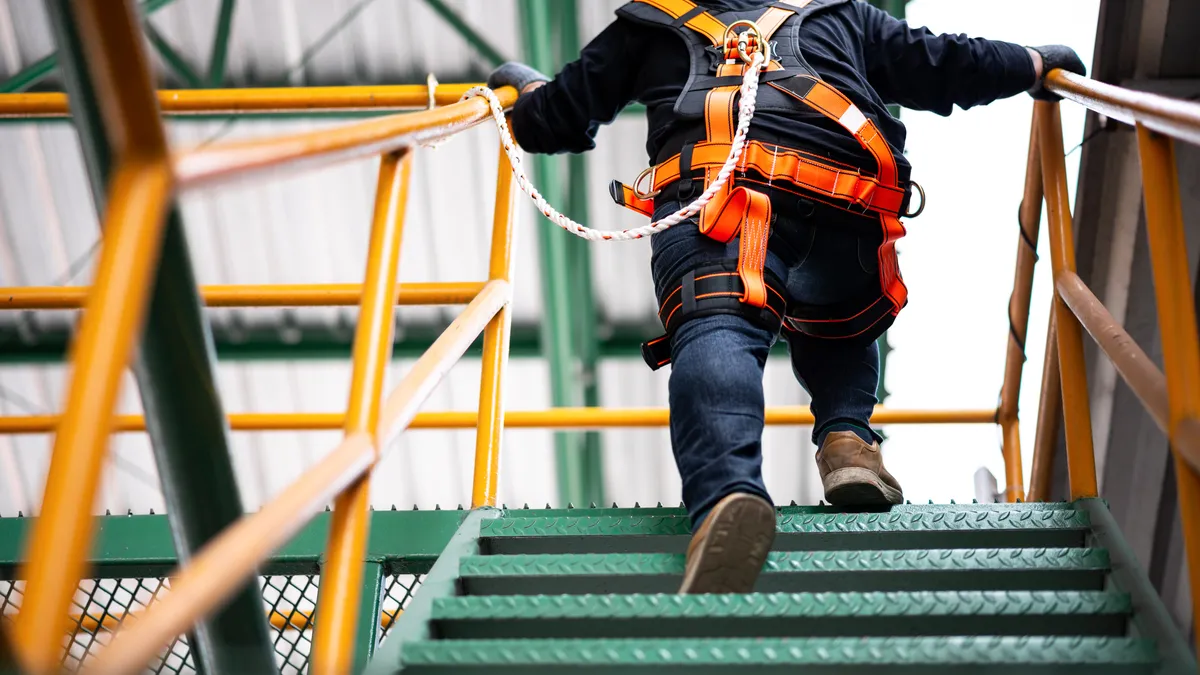Dive Brief:
- Construction continues to be one of the deadliest industries in the U.S., with 986 construction workers dying on the job last year.
- That represented a 2.2% decrease from 2020, according to Bureau of Labor Statistics data released Dec. 16, but still puts construction as one of the top sectors for total fatalities. To put construction’s numbers in context, transportation and warehousing deaths totaled 976 in 2021.
- Construction workers died at a rate of 9.4 per 100,000 full-time equivalent workers in 2021, the BLS reported, down from 10.1 in 2020. That rate has hovered in that threshold for at least a decade. The new per capita figures are the lowest since 2011, but still don’t break the trend.
Dive Insight:
Construction’s per capita rate of worker deaths is not the highest among industries. The agricultural, fishing, forestry and hunting industry averaged 19.5 deaths per 100,000 full-time employees and the transportation and warehousing rate equaled 14.5.
Nevertheless, some of the construction industry’s jobs were among the most dangerous: For instance, roofers’ rate was 59 worker deaths per 100,000 in 2021.
2021's most common construction fatal events or exposures
| Cause | Number of construction worker deaths (2021) |
|---|---|
| Falls, slips, and trips | 390 |
| Transportation incidents | 212 |
| Exposure to harmful substances | 204 |
| Contact with object or equipment | 127 |
SOURCE: Bureau of Labor Statistics
Falls, along with struck-bys, caught-in/betweens and electrocutions — dubbed the “Fatal Four” — continue to kill more construction workers than other causes combined.
2021’s slight decrease in construction deaths is no reason to rest, according to Brian Turmail, Associated General Contractors of America’s vice president of public affairs and strategic initiatives.
“There is a temptation to see a decline in the fatality numbers as something to celebrate. It isn’t,” Turmail said in a statement shared with Construction Dive. “There is nothing acceptable about nearly 1,000 people losing their lives in our industry.”
More work ahead
The worker death rate across all industries was 3.6 per 100,000, the highest since 2016.
Jessica Martinez, co-executive director for the National Council for Occupational Safety and Health, released a statement calling the death rate for all industries “unacceptably high,” and advocating for reform.
“We need an urgent wake-up call to our employers and our government,” Martinez said in the statement. “Listen to workers. Enforce our safety laws. Remove known hazards, and let’s work together to make sure every worker comes home safely at the end of every shift.”
BLS fatality numbers lag by about a year, which is why 2021 data is the most recent available. The organization shares data both by occupation and by industry — which can mean two distinct statistics of similar size are reported. Construction Dive uses the industry data, which represents all workers in construction. By occupation, BLS reported construction and extraction occupations together.














